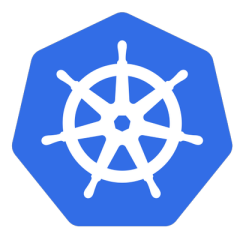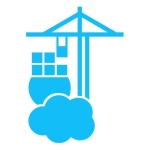What is our primary use case?
We are not using the Google version, but the open source Kubernetes.
This product can be deployed both on cloud or on-premises.
Our use case is mostly for multi-services or the applications which you will try to modernize. Investors will come from monolithic applications to mostly cloud-native applications. When I say cloud-native applications, that means each service component will be part of one container. You need a container orchestration or a management platform. So Kubernetes is actually a management or an orchestration platform for containers. Basically, it works with microservice applications.
What is most valuable?
One of Kubernetes' top features is its agility, it is very fast. You can deploy a container pretty quickly compared to a virtual machine. That is one strong feature. A second feature is its flexibility because you can use it on any platform. You can use it on Google or AWS or Microsoft or IBM or any clouds. So flexibility of deployment and agility are the top features. It also helps in your maintenance cycles when you do maintenance on your environment.
What needs improvement?
For improvements, I would say it's actually still evolving so they are already making a lot of improvements along the way. Each and every release comes with new features so I think they're doing well.
One feature I would actually like to see is the network monitoring part. When we talk about communities, it's mostly the computer side. But it does have some enhancements on the networking side which they have recently released. I would like to see more enhancement where we can monitor the networks of the Kubernetes cluster or the Kubernetes workloads.
For how long have I used the solution?
This Kubernetes product is new so I would say I have been using it around two years.
I am using version 1.18, not the latest one.
What do I think about the stability of the solution?
Stability is still a question because it depends upon which flavor you're installing. It could be on-prem or it could be cloud, it could be open source. It's still debatable.
That said, stability-wise I haven't seen any problem myself up to now, but I might not be right. There are many other people who are deploying this in a production environment. I haven't done it myself in production so I would not be the correct person to answer that. But for me, I haven't found any stability issues.
What do I think about the scalability of the solution?
Kubernetes definitely has good scalability.
The number of users on it can vary. It can be used by very small organizations to very large and complex organizations. There is a customer I was working with who has more than 80,000 employees around the globe. But not everyone is a user of this technology. If you're asking about the users of this technology, I would say around 1,000 - 5,000.
How are customer service and technical support?
Their technical support depends upon which flavor you're installing. Mostly, if you're going to the cloud version, support is definitely provided by the vendors. Like Microsoft provides its own support, AWS provides their own, and even IBM does the same. But if you're deploying on your own prem, that's where the question is. It depends. It's not a product sold by a single company, it's an open source, so big companies like J.P Morgan or Citibank have it deployed on their own premises and support will be their internal teams who will be working on that.
How was the initial setup?
Installation is not a straightforward thing. It's a process that you have to follow step by step. On-prem is a little tedious because you have to spend some time to get this installed and create a platform. But people are mostly inclined towards cloud. They use Kubernetes on the cloud.
I did install it myself in my lab and the install itself doesn't take much time, about a couple of hours. But to go through the documentation takes time. You have to understand each and every component and then try to install that. So it's a combination of both understanding the documentation and then installing. Because it's a new technology, it does take a little bit of time.
What about the implementation team?
It depends. If you talk to a customer and you get a project with them that they want to deploy, you're going to need a project manager or a technical architect, and then you'll need at least one or two guys who can do the hands on deployment. It's not a fairly large team, but you will need a project manager, a technical architect and an engineer.
What's my experience with pricing, setup cost, and licensing?
There are different types of licenses. You have a subscription-based license if you are talking about cloud. This has both yearly or monthly available. Or you can go on number of workloads, based on how much workload you're putting on the cloud.
What other advice do I have?
I would definitely recommend Kubernetes for others who want to start using it.
I would say it is no longer in its inception phase, but it is still in the early phase. The product hasn't matured enough. There are customers who are looking to take this maybe around two years down the line. On a scale of one to ten, I would give Kubernetes an eight.
Which deployment model are you using for this solution?
Hybrid Cloud
Disclosure: My company has a business relationship with this vendor other than being a customer: Partner

















